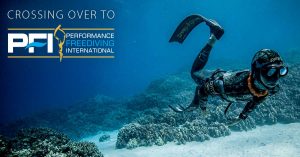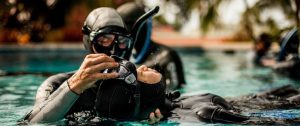 Freediving, also known as breath-hold diving, is the practice of diving underwater without the use of breathing apparatus such as scuba gear. Freedivers rely solely on their own physical ability to hold their breath and control their breathing to stay underwater.
The physiology and psychology of freediving are closely related, as they both involve the control of the body and mind during the dive. Physiologically, freediving requires a high level of physical fitness and training to increase lung capacity, cardiovascular efficiency, and muscle strength.
Freediving, also known as breath-hold diving, is the practice of diving underwater without the use of breathing apparatus such as scuba gear. Freedivers rely solely on their own physical ability to hold their breath and control their breathing to stay underwater.
The physiology and psychology of freediving are closely related, as they both involve the control of the body and mind during the dive. Physiologically, freediving requires a high level of physical fitness and training to increase lung capacity, cardiovascular efficiency, and muscle strength.

Mental preparation is also crucial for freediving as it requires a high level of focus, discipline, and control over the body. This can be achieved through visualization techniques, mindfulness, and relaxation exercises. One key component of freediving training is learning proper breathing techniques. This includes learning how to breathe deeply and efficiently to increase the amount of oxygen in the lungs and reduce the amount of carbon dioxide. Training also includes learning how to hold the breath for extended periods of time and how to recover quickly after a dive. Another important aspect of freediving is equalization, or the act of maintaining equal pressure between the ears and sinuses and the surrounding water. This is necessary to prevent injury to the ears and sinuses caused by the difference in pressure between the water and the air spaces in the head. There are several methods used for equalization while freediving.
The most common method is the "Valsalva maneuver," which involves pinching the nose and blowing gently to force air into the Eustachian tubes that connect the middle ear to the back of the throat. Another method is the "Frenzel maneuver" which involves tensing the muscles at the back of the throat to force air into the Eustachian tubes. A third method is the "Toyota maneuver" which involves swallowing while pinching the nose. Freediving also requires proper technique and body positioning. This includes keeping the body as streamlined as possible to reduce drag and conserve energy, and using the fins or hands to propel the diver forward. Freediving is a challenging and potentially dangerous sport, and it is important for individuals to take proper safety precautions and obtain proper training before attempting to freedive. This includes learning proper rescue techniques, and always diving with a partner who is trained in rescue and first aid.
In addition to the physiological and psychological preparation, freedivers also need to be familiar with the conditions of the water they are diving in and to be aware of any potential hazards. This includes understanding the water currents, visibility, and marine life, as well as being aware of any risks such as hypothermia, hyperventilation, blackout, and other diving-related accidents. Freediving is a challenging and rewarding sport that requires a high level of physical and mental preparation. It requires learning proper breathing techniques, equalization methods, and body positioning to safely and comfortably dive underwater. It is important to take safety precautions and to seek proper training before attempting to freedive, and to always be aware of the conditions and potential hazards of the dive
Seapixels now teaches basic freediving that can be done at either our local Lake or at the island. Please drop us an email to inquire more about PFI basic freediving at terence@seapixels.org
Freediving, also known as breath-hold diving, is the practice of diving underwater without the use of breathing apparatus such as scuba gear. Freedivers rely solely on their own physical ability to hold their breath and control their breathing to stay underwater. The physiology and psychology of freediving are closely related, as they both involve the control of the body and mind during the dive. Physiologically, freediving requires a high level of physical fitness and training to increase lung capacity, cardiovascular efficiency, and muscle strength.